2025.05.21
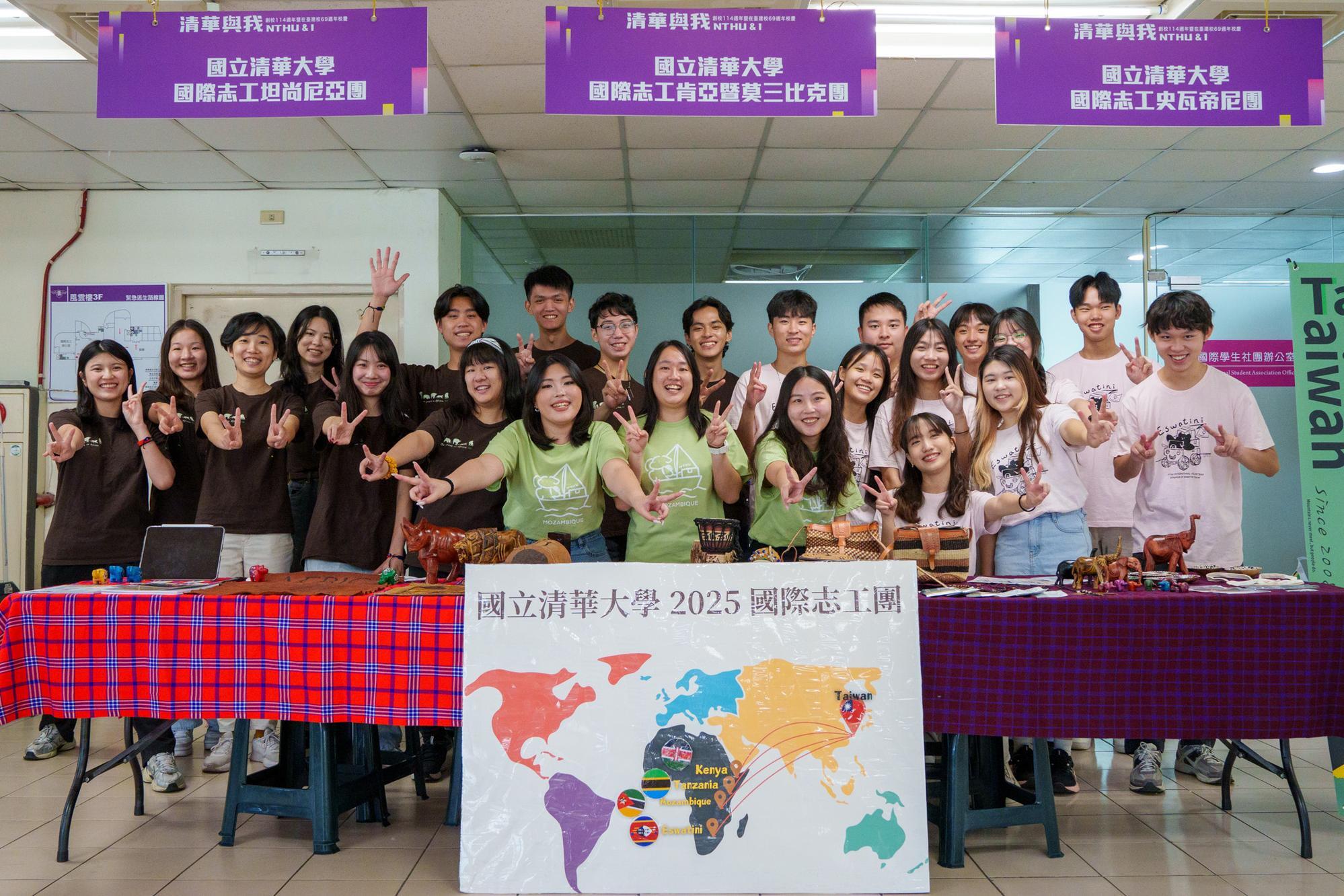
NTHU's International Volunteer Team is preparing to send its teams overseas this summer.
The renowned International Volunteer Team of National Tsing Hua University (NTHU) in Taiwan was established 18 years ago. This summer, the team is sending 30 volunteers to Tanzania, Eswatini, Kenya, and Mozambique to conduct information technology courses. They are bringing 231 donated second-hand computers and, for the first time, introducing AI courses to help teachers and students in underserved areas bridge the digital divide.
At the pre-trip meeting, NTHU Senior Vice President Nyan-Hwa Tai (戴念華) reminded the participants that “The greater your ability, the greater your responsibility.” He also pointed out that education sets the stage for social transformation, and that the program provides students with an opportunity to collaborate across fields in repairing computers, planning courses, and integrating resources.
Tanzania was one of the first destinations for NTHU's International Volunteer Team. After a five-year pause due to the pandemic, the team is resuming its work there, offering courses at nine schools. The Eswatini team has been upgraded from a pilot project to a formal team, and its scope has been expanded to five schools. The Kenya team will begin teaching in an under-resourced community for the first time, and another team is cooperating with Tzu Chi to become the first team of Taiwanese students to volunteer in Mozambique. Each team will remain in its host country for five or six weeks.
A major element of each team's teaching plan is the introduction of AI. Each team has designed its courses to suit local conditions, focusing on topics such as AI literacy and applications, social impact, and how to recognize fake information.
The AI literacy course organized by the Tanzania team, which covers Python and Scratch, adopts the perspective of environmental sustainability in teaching students how to creatively repurpose electronic waste. The Eswatini team is not only planning to hold a workshop introducing local teachers to AI tools such as ChatGPT and Canva, it will also teach media literacy courses for students. Team leader Yu-Xi Lin (林昱希) said that they are using a modular teaching plan suitable for a low-resource environment, with the expectation that the courses will continue after the volunteers leave.
The Kenya and Mozambique teams plan to adjust their teaching methods based on the prevailing local conditions, teaching ChatGPT in areas with a good internet connection, and using offline teaching materials in other areas. The teams are also planning to fill the gap in educational resources by using digital teaching materials like PHET and GeoGebra.
Ting-Hui Liao (廖庭輝), the leader of the Kenya and Mozambique advance team, said, “Even without the Internet, we can still broaden students' horizons by sharing our knowledge and Taiwanese culture.” The Eswatini team is planning to establish cultural connections by holding an event featuring traditional children's toys from Taiwan.
Eswatini team leader Wei-Ting Tseng (曾韋婷) remembers how in her previous trip many of the kids didn't even know how to hold a computer mouse, but after class they would latch onto her and beg her to continue teaching. She was so deeply moved that she decided to serve in Africa again. Tanzania team leader Chen-Kai Wen (溫宸楷) hopes to share the knowledge he has learned in school to help African children get in touch with the world so that “We all grow together in the process.”
The team expressed deep gratitude for the support received from the Alumni Association, the Ministry of Education Youth Development Administration, the ASUS Foundation, Fubon Financial, Novatek Microelectronics, the Hsieh Kun Corporation, Gao-fu Technology, Umicore, the United Microelectronics Corporation, the Tzu Chi Foundation, the Amituofo Care Centre, the Taiwan Africa International Service Association, alumnus Shui-Quan Xin (辛水泉) alumnus Chong-Fei Huang (黃崇飛), and Taiwan Imaging-Tek Corporation general manager Star Song (宋智達).
Mei-Chen Chen (陳美珍), deputy general manager of Fubon Wealth Management in Taipei, said that it is touching to see students using technology to further education in Africa. She exhorted the volunteers to maintain their passion and original intention, saying that “When you begin with positive energy, the possibilities are unlimited.”
NTHU's International Volunteer Team was established in 2007 and, so far, it has sent over 700 students to eight countries in Africa, Central America, and Asia. It has also received the Excellence Award from the Ministry of Education's Youth Development Administration.
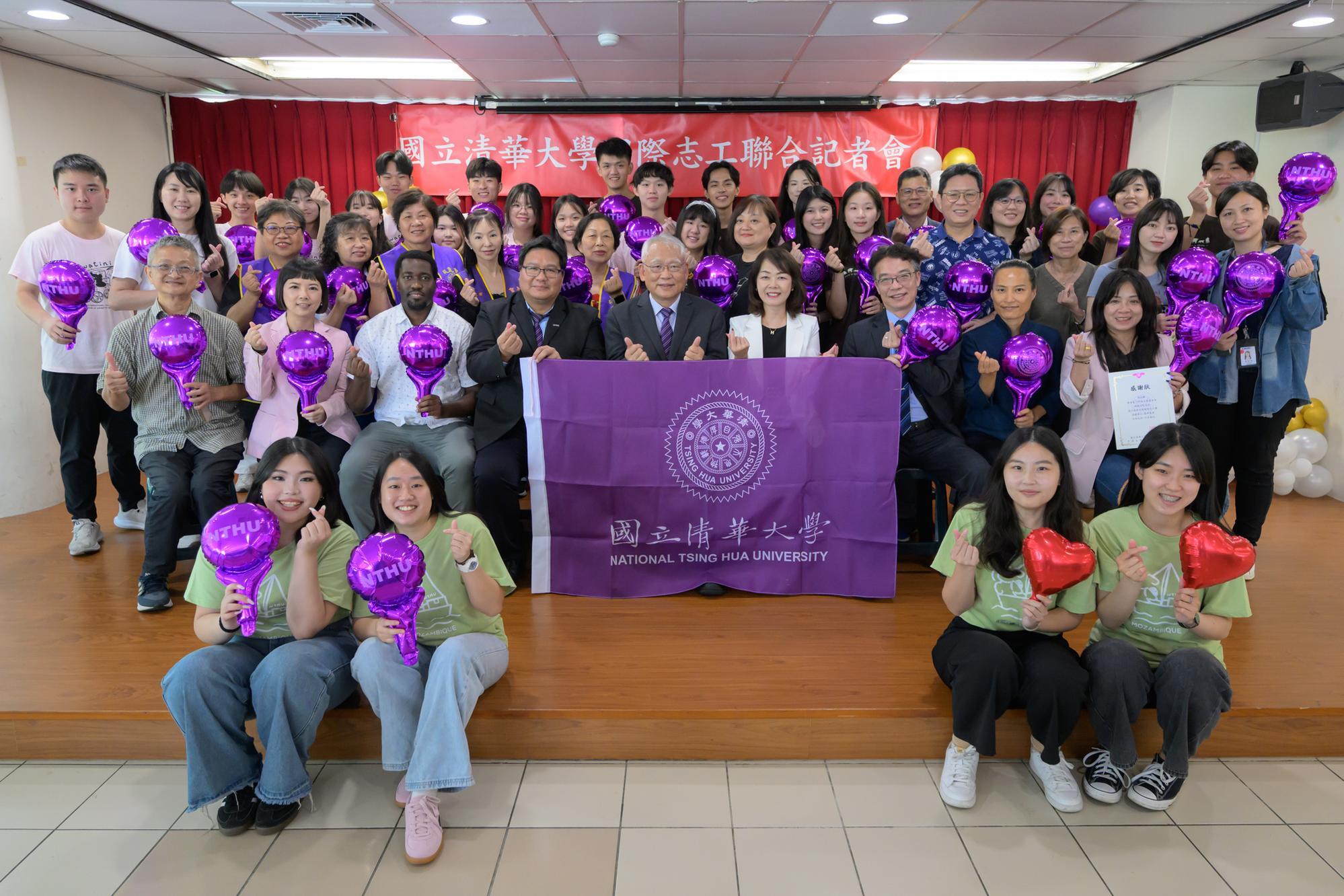
NTHU's International Volunteer Team is preparing to send its teams overseas this summer.
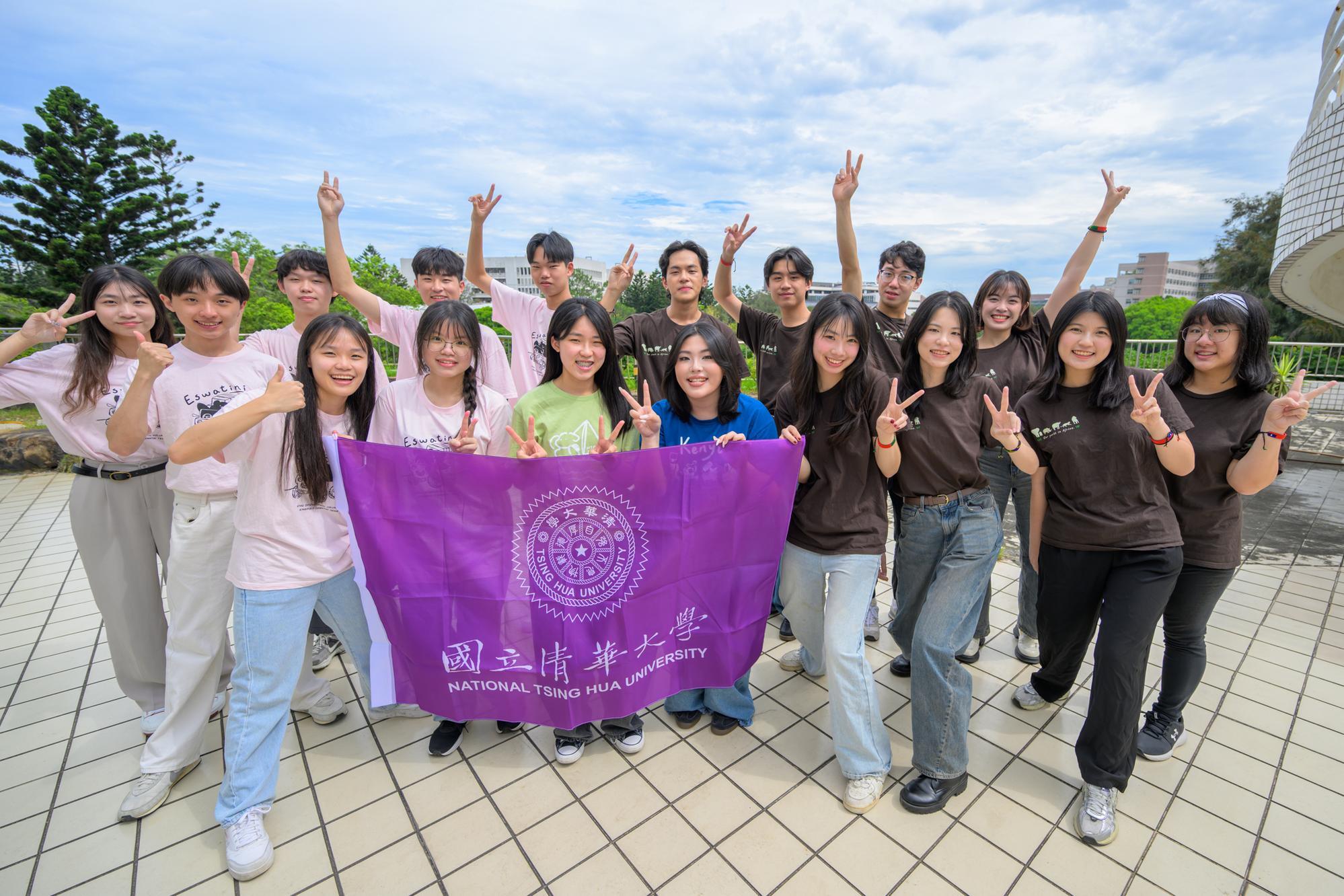
NTHU's International Volunteer Team is preparing to send its teams overseas this summer.
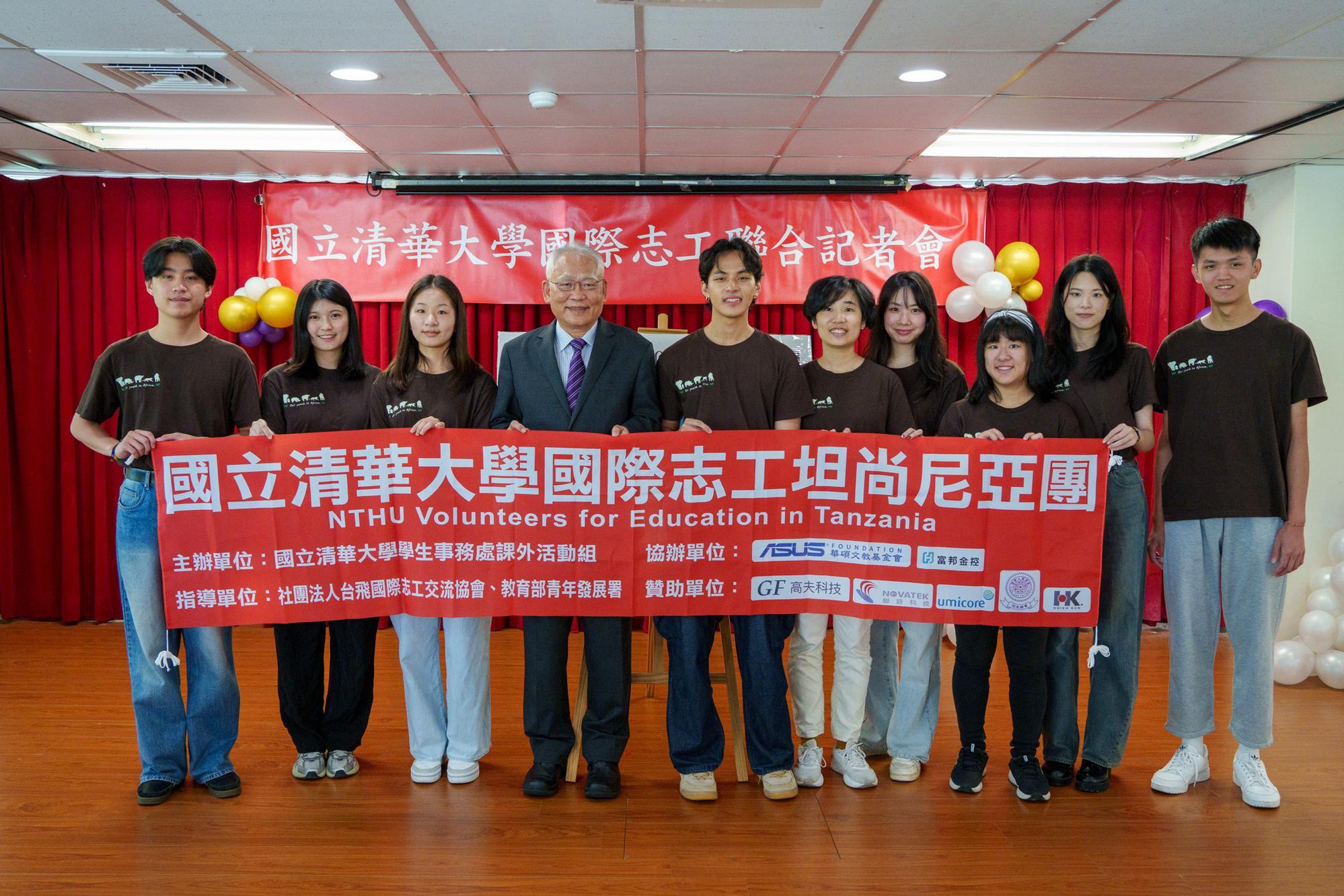
NTHU Senior Vice President Nyan-Hwa Tai (戴念華) (4th from left) with members of the Tanzania team.
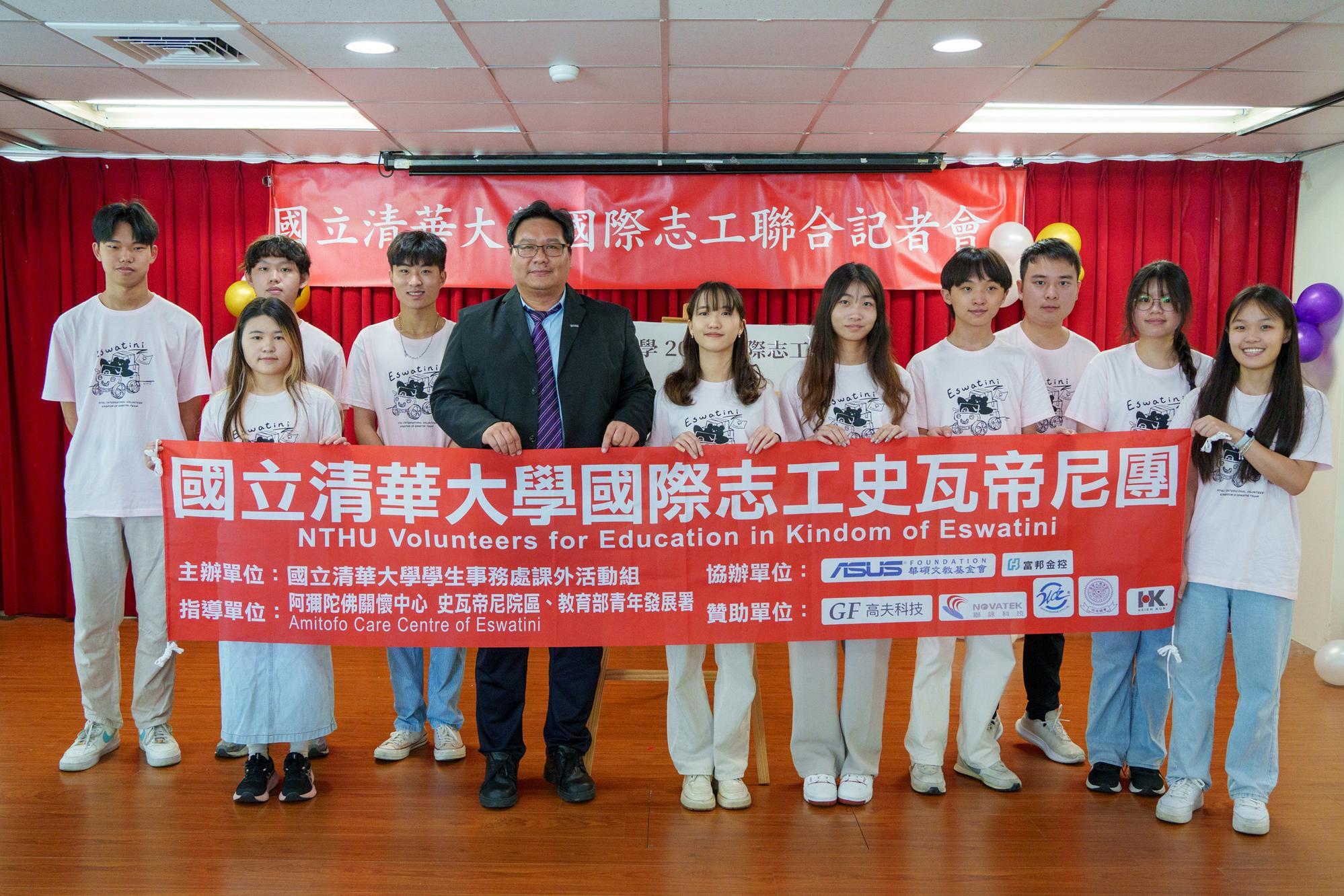
Dean of student affairs Hong-Lin Chan (詹鴻霖) (4th from left) with members of the Eswatini team.
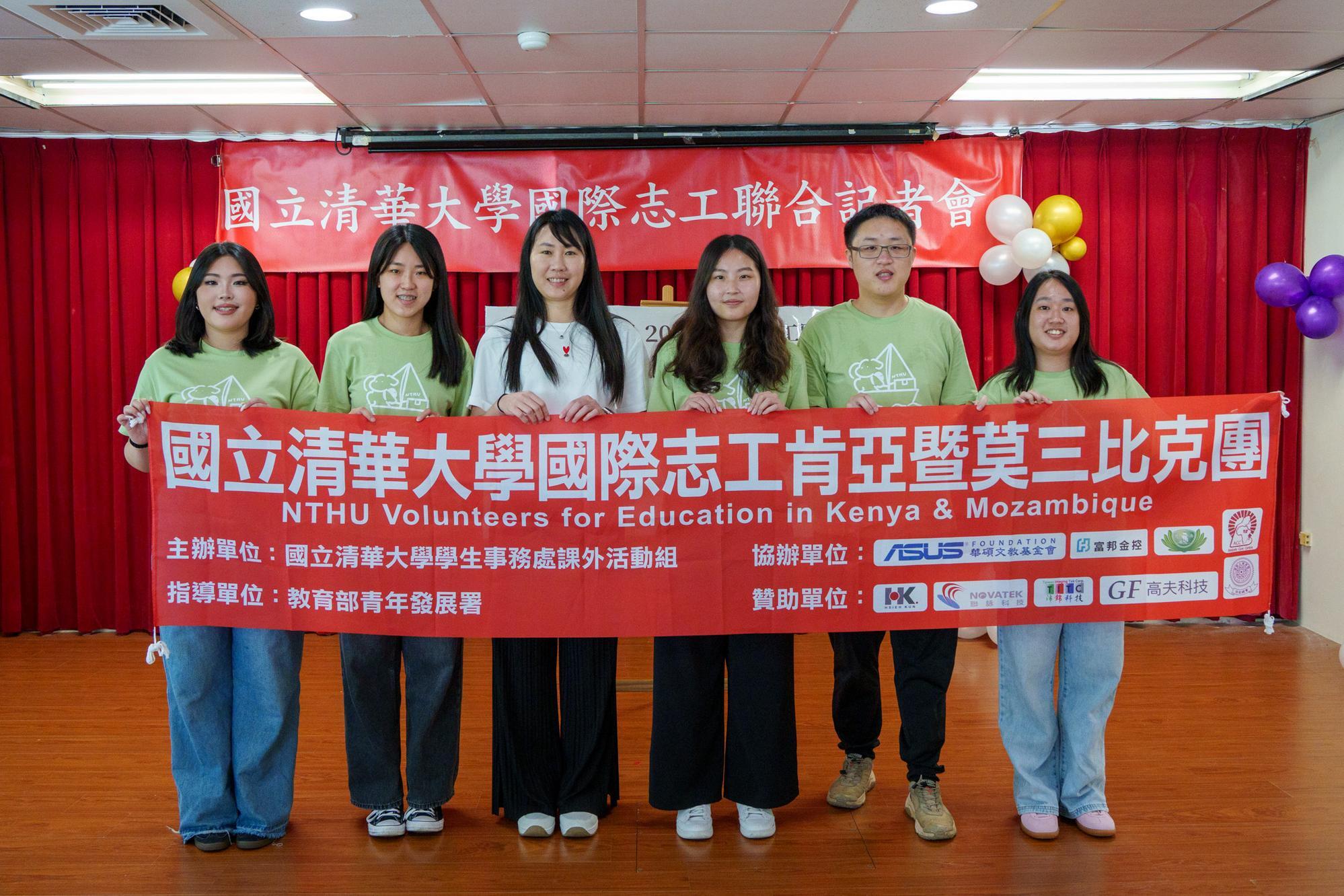
Director of extracurricular activities Hui-Fang Szu (施惠方) (3rd from left) with members of the Kenya and Mozambique teams.
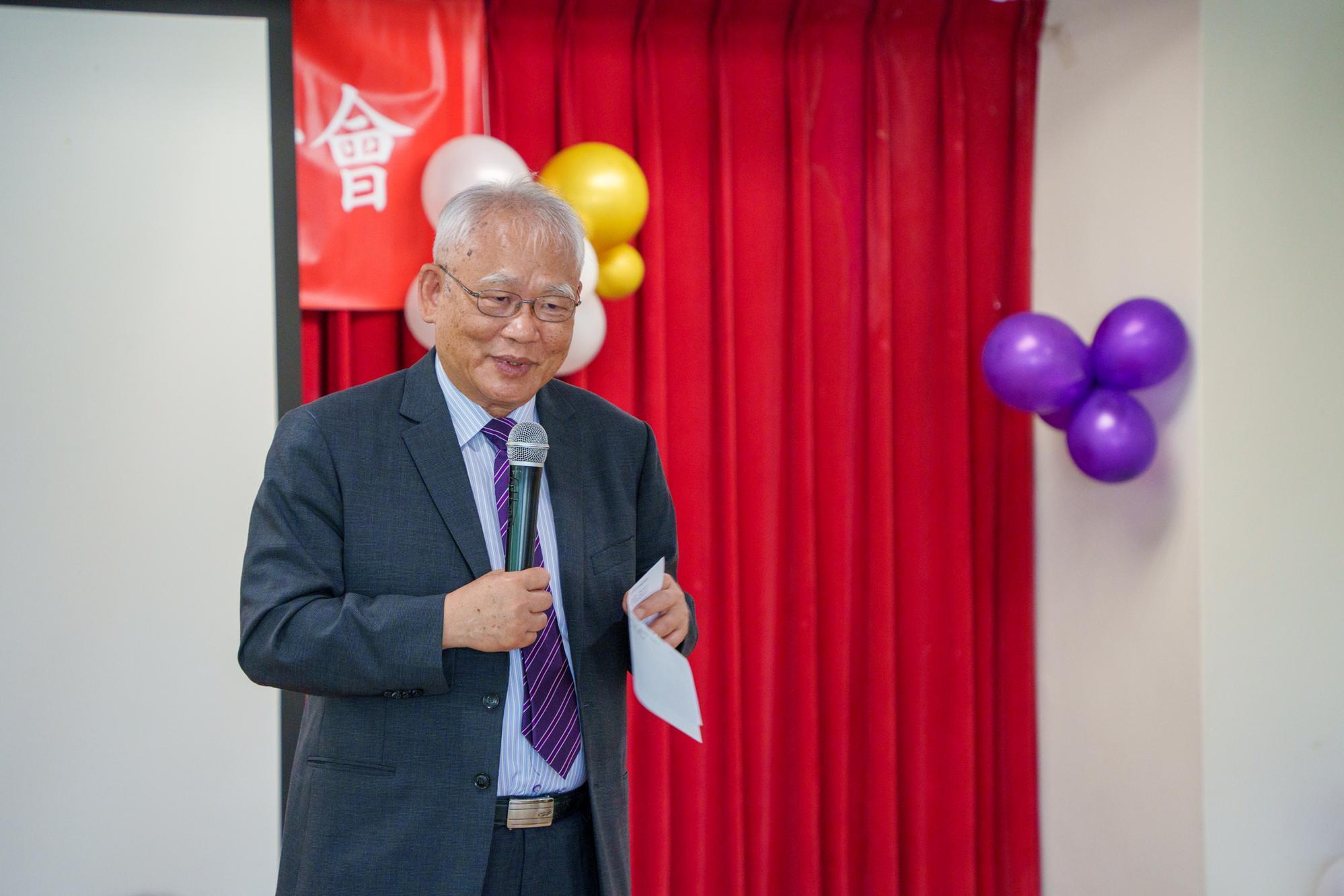
Tai reminded the volunteers of the NTHU school motto: “Self-discipline and social commitment.”
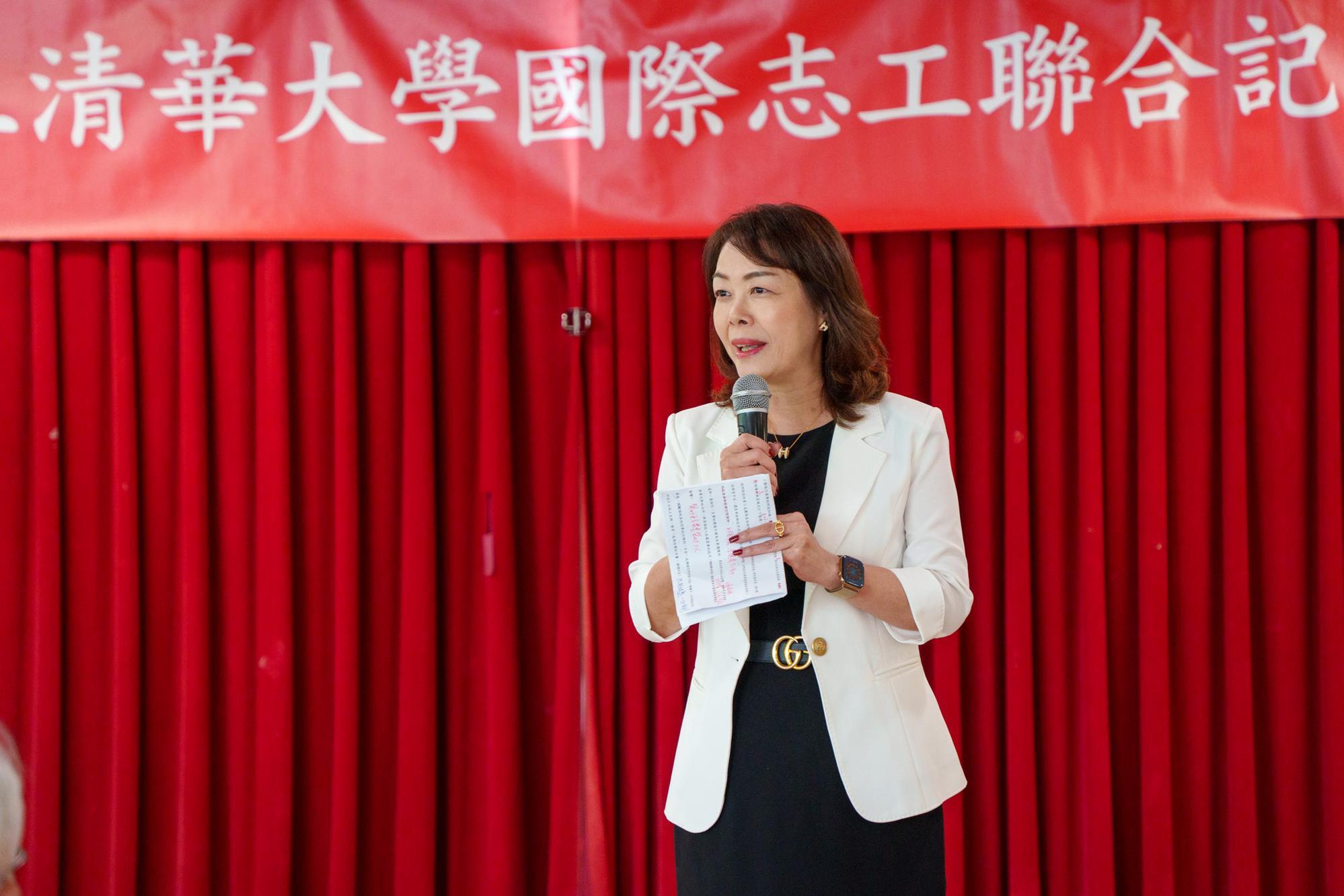
Mei-Chen Chen (陳美珍) affirmed the team's plan to make technology education a central part of their program.
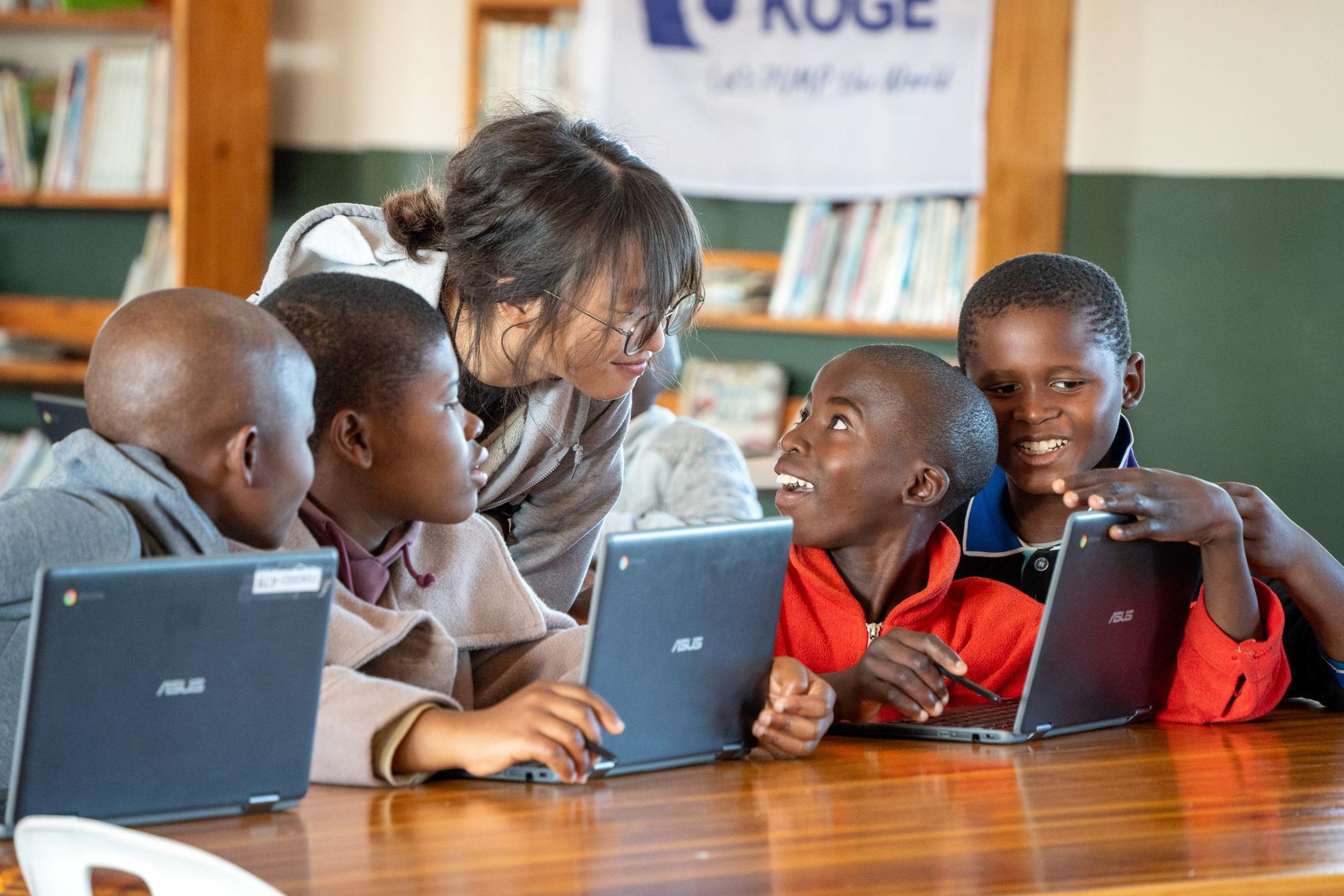
Kids in Eswatini excitedly sharing what they've learned with a member of the volunteer team.
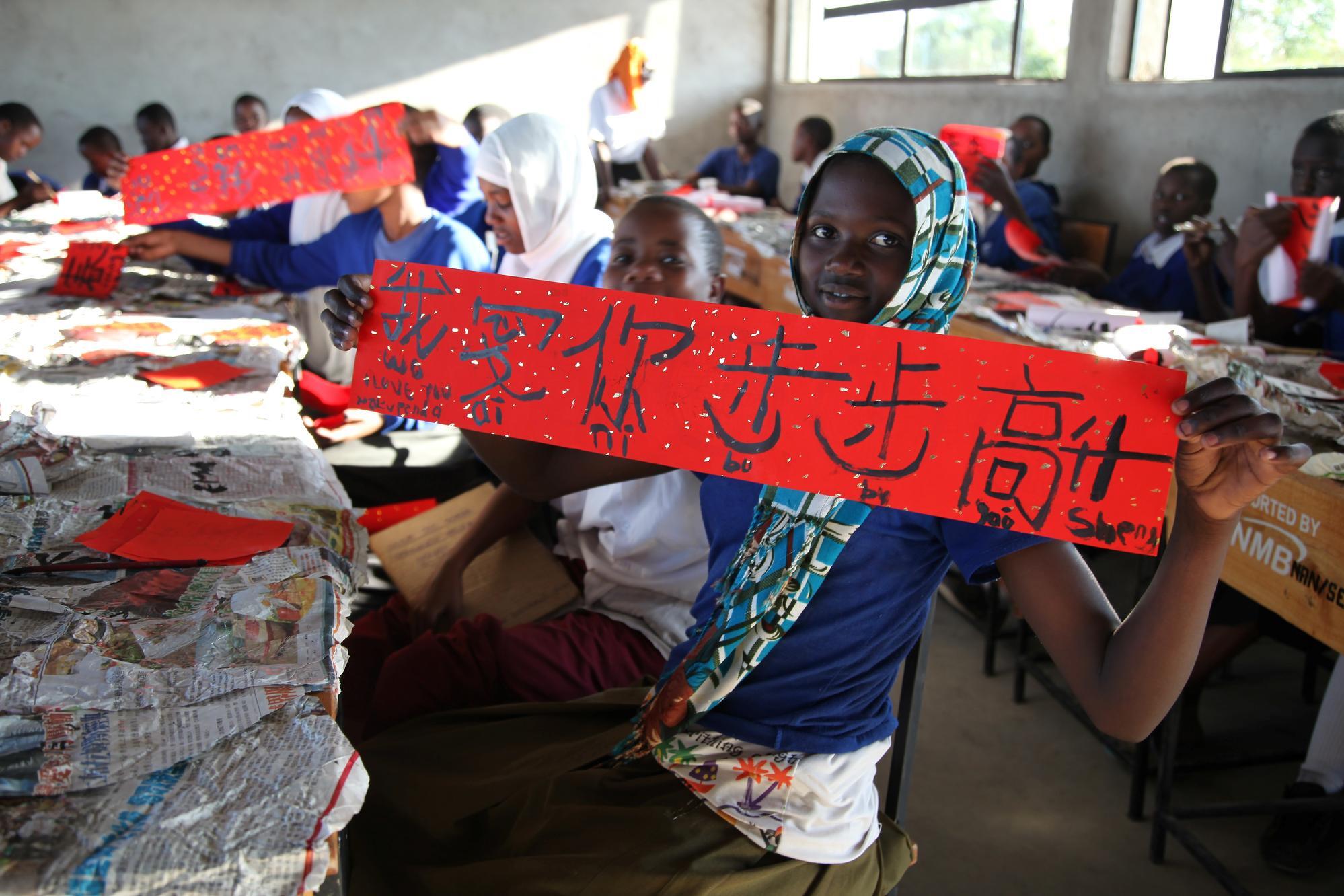
Students in Tanzania proudly displaying their newly acquired Chinese writing skills.
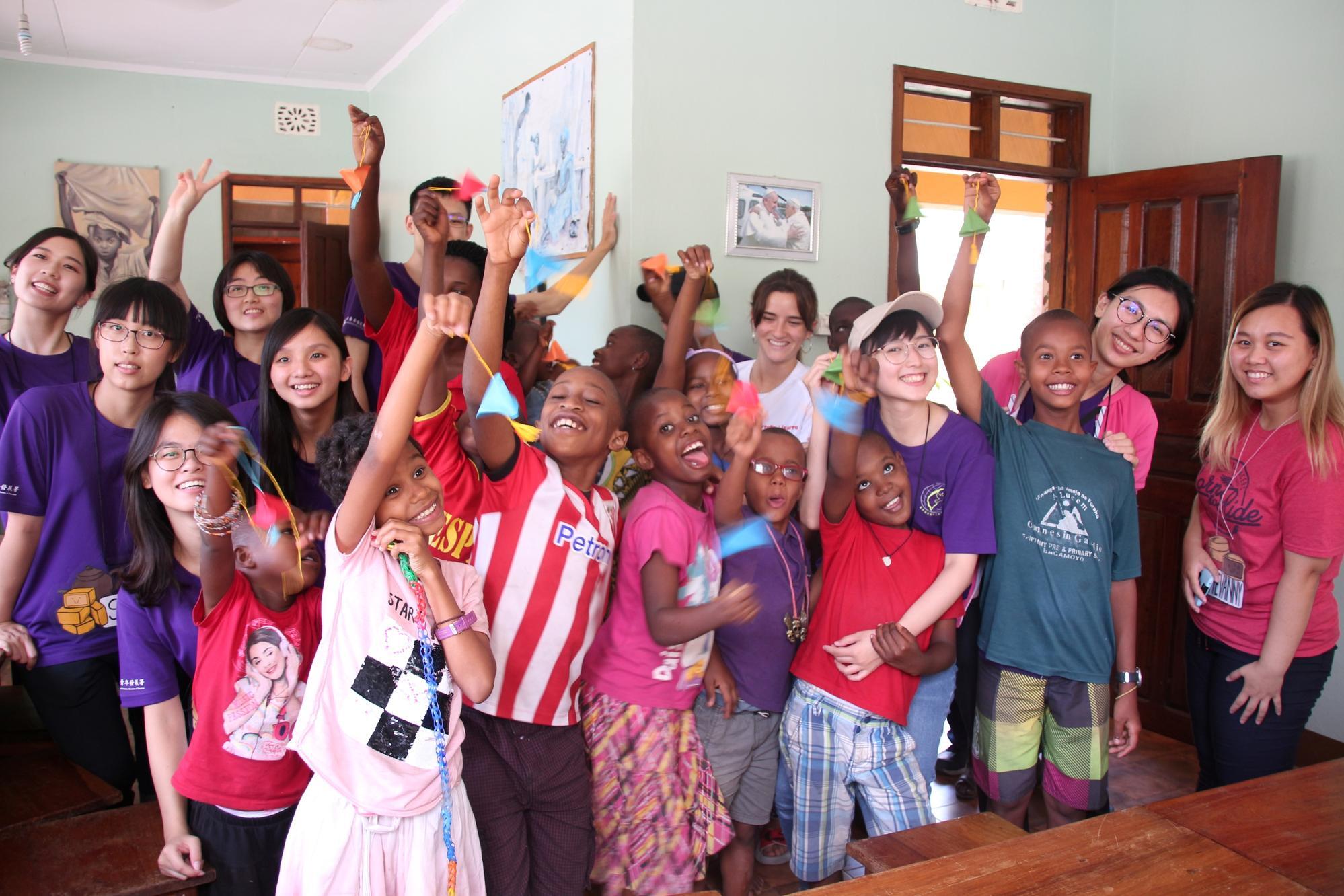
Volunteers and their Tanzanian students in the classroom.
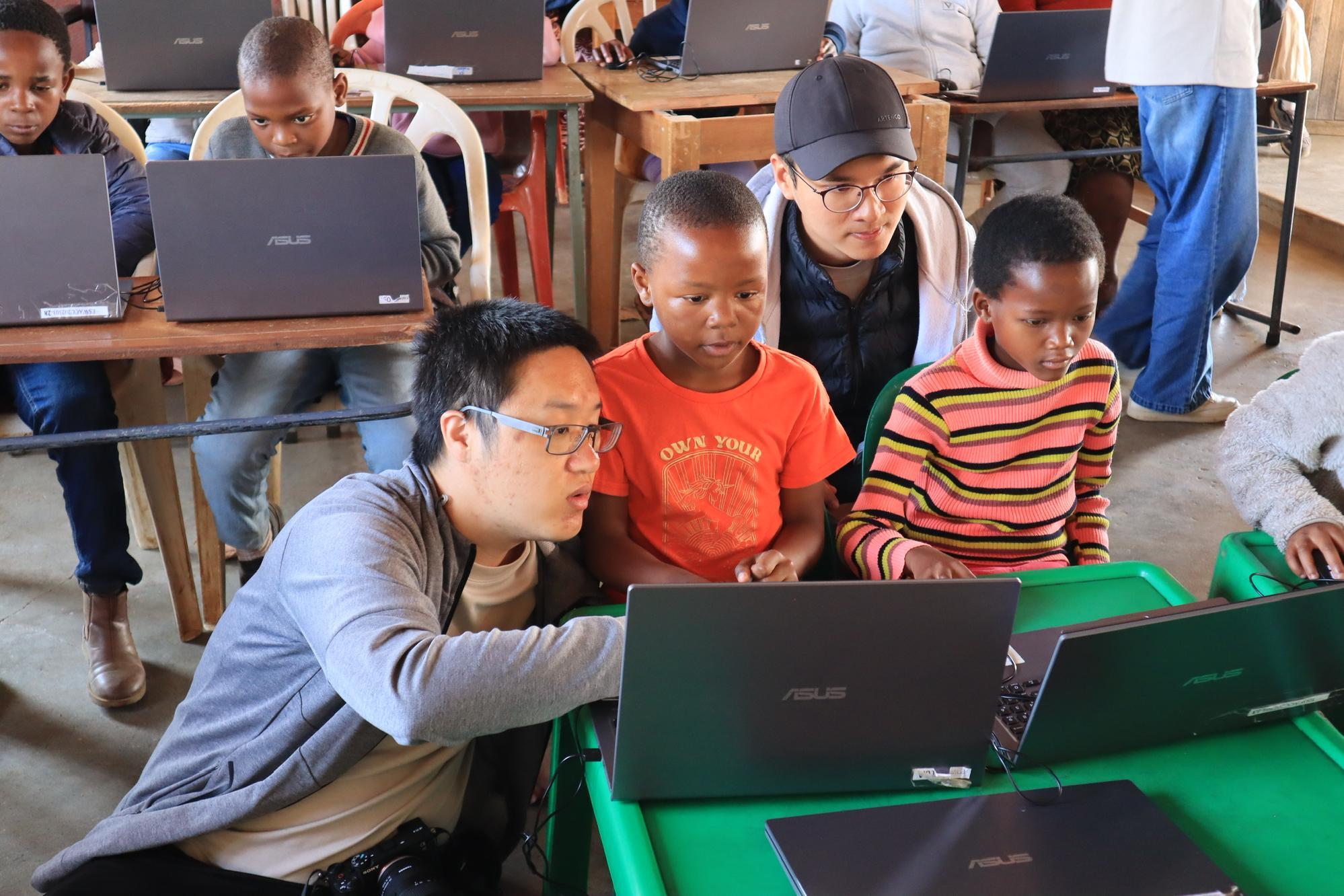
Volunteers teaching a computer class in Eswatini.
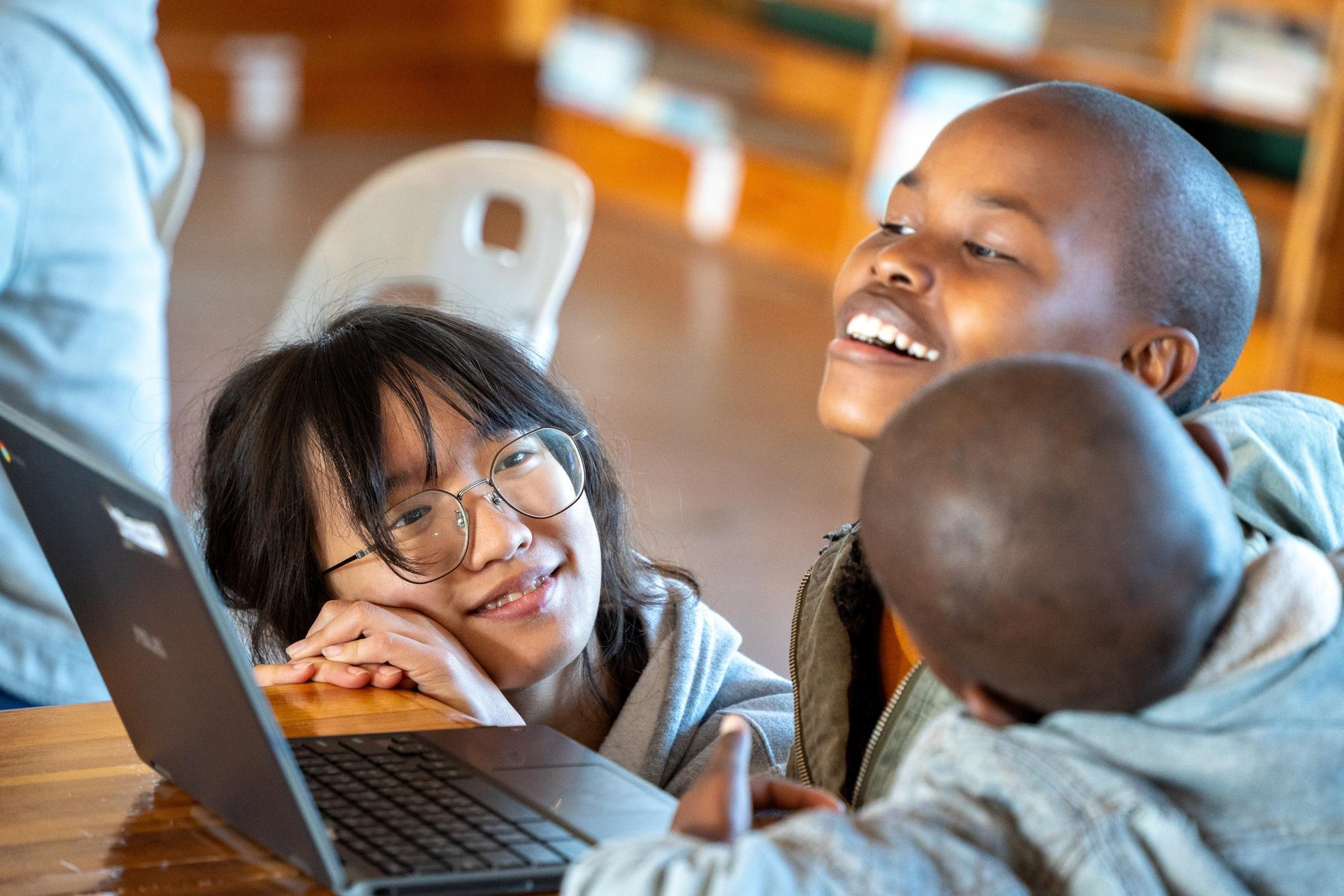
A volunteer in Eswatini showing students how to use a computer to explore the world.













